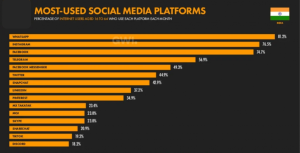In this blog post we India Delhi WhatsApp Indiatrivedibloomberg. WhatsApp plans to start a payments service in India in the next few months, according to people familiar with the matter. The messaging service, owned by Facebook, is in talks with several banks to partner for the service, the people said, asking not identified as the discussions are private. The launch of payments in India would give WhatsApp a huge advantage over its rivals in one of the world’s most important digital-payment markets. India is home to more than 1.3 billion people, and the payments market is projected to grow to $500 billion by 2020, from $200 billion in 2016, according to a report by Boston Consulting Group.
India’s WhatsApp problem

WhatsApp is an immensely popular messaging app in India with over 200 million users. However, the app has been in the news for all the wrong reasons lately. The app is linked to some crimes, including the recent murder of a young woman in Delhi.
The victim, a 23-year-old student, was allegedly lured to meet her killer on the pretext of a job interview. Once she was alone with him, he raped and murdered her. The police say that the killer used WhatsApp to communicate with the victim and lure her into meeting him. This is just one of the many crimes linked to WhatsApp in recent months. There have been reports of child pornography being shared on the app and cases of cyber bullying and even fraud.
The Indian government has now asked WhatsApp to prevent such app misuse. WhatsApp has said it is working on new features to make it harder for people to misuse the app. However, some experts say that the problem is not with WhatsApp but with how people use it. They say that WhatsApp is just a tool and it is up to users to make sure that they use it responsibly.
Whatever the case, it is clear that WhatsApp is facing a major problem in India. The app must find a way to prevent its users from misusing it, or else it could be in a tough time in the country.
The messaging app’s popularity in India

It is no secret that messaging apps are extremely popular in India. According to a report by India Delhi WhatsApp Indiatrivedibloomberg, WhatsApp is the most popular messaging app in the country, with over 200 million active users. They followed Facebook Messenger with over 100 million active users.
Interestingly, Indian startups are also making a mark in the messaging app space. Hike Messenger, which was launched in 2012, has over 100 million active users. Similarly, GupShup Messenger, launched in 2014, has over 50 million active users.
So, what about messaging apps make them so popular in India?
There are a few reasons for this. Firstly, messaging apps are extremely convenient. They allow users to communicate with each other without having to meet in person. This is especially useful for people who live in different parts of the country.
Secondly, messaging apps are very affordable. They are often free to download and use. This makes them an attractive option for people who cannot afford to pay for expensive messaging services.
Thirdly, messaging apps offer a wide range of features. For example, WhatsApp allows users to share photos, videos, and files. Similarly, Hike Messenger offers a wide range of stickers and emoticons. This makes messaging apps more fun and engaging.
Fourthly, messaging apps are very secure. They offer end-to-end encryption, meaning only the sender and the receiver can read the messages. This is important for people who want to keep their conversations private.
Finally, messaging apps are constantly evolving. They are constantly adding new features and improving existing ones. This makes them more attractive to users.
So, there you have it. These are some of the reasons why messaging apps are so popular in India. If you are looking for a messaging app, check out WhatsApp, Facebook Messenger, Hike Messenger, or GupShup Messenger.
WhatsApp’s role in the country’s recent internet shutdown

Since the beginning of December, Indian security forces have violently clashed with protesters in the country’s northeast region. The protests are sparked by the government’s decision to pass a controversial citizenship law that many believe is discriminatory against Muslims.
To quell the unrest, the Indian government has imposed strict restrictions on internet and mobile phone services in the affected areas. And it appears that WhatsApp plays a role in the government’s internet shutdown strategy.
According to a report from Trivedi Bloomberg, WhatsApp are blocked in at least three states in India Assam, Meghalaya, and Tripura as part of the government’s internet shutdown.
The report notes that the WhatsApp blocks were imposed after the messaging app was used to “spread rumors” about the citizenship law. It’s not clear how long the blocks will remain in place.
This is not the first time WhatsApp has been caught up in a political controversy in India. In July, the Indian government ordered WhatsApp to delete more than 100 accounts that were allegedly spreading “fake news” about the government’s plans to deport Rohingya Muslims.
WhatsApp has also been used to spread rumors about child abductions, which have led to several lynchings in India. In response to the problem, WhatsApp has implemented some measures, including adding a label that says “forwarded” when a message has been forwarded more than five times.
WhatsApp is facing a tough situation in India. On the one hand, the messaging app spreads rumors and misinformation that can lead to violence. On the other hand, the Indian government is using WhatsApp as a pretext for internet shutdowns that violate the human rights of protesters.
It remains to be seen how WhatsApp will respond to the latest controversy. But one thing is certain: the messaging app is in a tough spot in India.
How the app is being used to spread fake news

WhatsApp has become a hotbed for fake news and misinformation in India. A recent study Indian fact checking website BoomLive found that over 80 percent of the fake news they debunked in 2018 was spread via WhatsApp.
This is particularly worrying in India, where the messaging app has over 200 million users. WhatsApp is often the only news source for many people in rural areas with high illiteracy rates. And because WhatsApp messages are often forwarded without being read, it’s easy for false information to spread quickly and widely.
The problem has been exacerbated by WhatsApp allowing anyone to create and spread content without any accountability. There is no way to track where a message originated and no way to verify the information in it.
This has led to some serious consequences. In 2018, for example, fake news circulated on WhatsApp sparked many lynchings in India. In one case, a rumor that child kidnappers were operating in the area led to a mob attacking and killing a man simply asking for directions.
The government has tried to crack down on spreading fake news on WhatsApp, but these efforts have been unsuccessful. In July 2018, the Indian government issued a set of guidelines for WhatsApp, asking the company to take measures to prevent the spread of fake news. But these guidelines have yet to be enforced, and WhatsApp has not significantly changed how it operates in India.
The problem of fake news on WhatsApp is not limited to India. The messaging app has been used to spread false information in other countries, including Brazil, Sri Lanka, and Pakistan. In each case, spreading fake news has had serious real world consequences.
The government’s response to the spread of misinformation on WhatsApp

The spread of misinformation on WhatsApp has been a problem in India for some time now. In 2018, the Indian government even warned the messaging app over the spread of fake news. Now, the government is taking action to try and stop the spread of misinformation on WhatsApp.
According to a report from Bloomberg, the Indian government is working on a plan to stop the spread of misinformation on WhatsApp. The report says that the government is considering some options, including asking WhatsApp to change how it works or banning the app altogether.
The government is reportedly concerned about how WhatsApp is used to spread fake news and misinformation. This problem has been highlighted in recent months, with some high-profile incidents of violence being linked to fake news spreading on WhatsApp.
It is unclear what the government’s plans are or when they will be implemented. However, the spread of WhatsApp misinformation is a problem the government is taking seriously.
The impact of the fake news problem on WhatsApp’s users in India

WhatsApp has been in the news for all the wrong reasons lately. The messaging app has come under fire for being a breeding ground for fake news. In India, WhatsApp is used by over 200 million people. And the problem of fake news is especially rampant on the platform in the country.
The problem of fake news on WhatsApp came to the fore after a series of lynchings in India. In May 2018, five men were lynched in Maharashtra on suspicion of being child lifters. The rumors of active child lifters in the area were spread through WhatsApp. In July 2018, another man was lynched in Assam on the suspicion of being a child-lifter. The rumors were again spread through WhatsApp.
These incidents led to a lot of criticism of WhatsApp. The company by not done enough to stop the spread of fake news on its platform. The government even asked the company to take measures to stop the spread of fake news.
WhatsApp has taken some steps to tackle the problem of fake news. It has launched a fact-checking service in India. It has also put out full-page newspaper ads to spread awareness about fake news.
Despite these measures, the fake news problem on WhatsApp continues to persist. This is because it is up to the users to decide what they want to believe. And sadly, many people are still willing to believe fake news over the truth.
The future of the messaging app in India

The messaging app market in India is growing rapidly with new players entering the fray regularly. WhatsApp, owned by Facebook, is the most popular messaging app in the country with over 200 million monthly active users.
However, some other messaging apps are gaining popularity in the country. These include Hike, WeChat, Viber, Telegram and others.
The Indian government’s recent decision to demonetize high value currency notes has led to a surge in the use of digital payments. This is likely to benefit messaging apps that offer digital payment solutions.
WhatsApp has already launched its digital payment service, WhatsApp Pay, in India. This is based on the Unified Payments Interface (UPI) platform.
- WeChat, owned by Chinese internet giant Tencent, also offers a digital payment service in the country.
- Telegram, a popular messaging app among the youth, is also planning to launch a digital payment service in India.
With the growth of digital payments in India, messaging apps that offer this service are likely to see a further increase in users.
Final Verdict
The Supreme Court of India finally delivered its verdict on the WhatsApp privacy case. A three-judge bench, headed by Chief Justice Dipak Misra, has unanimously ruled that WhatsApp’s new privacy policy, which allows it to share user data with Facebook, is legal.
The court also said that WhatsApp is free to implement its new privacy policy, and users who do not agree with it can delete their accounts. However, the court added that the messaging app must notify users about the changes to its privacy policy and give them the option to opt out.
WhatsApp first announced its new privacy policy in August 2016 but later postponed its implementation after facing a backlash from users. The new policy is to go into effect on February 8. Still, it was once again delayed after the Supreme Court sought clarification from the company on how it would protect user data.
The main bone of contention in the case was whether WhatsApp’s new privacy policy violated the right to privacy of its users. The petitioners argue that the policy goes against the ‘right to be forgotten,’ as it allows WhatsApp to share user data with Facebook without their consent.
However, the Supreme Court has now ruled that WhatsApp’s new privacy policy is in line with the right to privacy and does not violate any of the fundamental rights of its users.
This is a big win for WhatsApp, which has been controversial since Facebook acquired it in 2014. The messaging app has been under pressure to improve its privacy policies and protect user data, and this verdict will go a long way in assuaging the concerns of its users.



